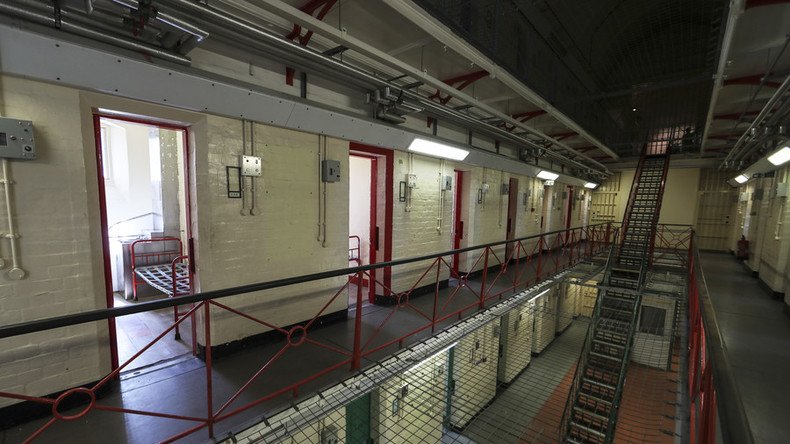Black & Muslim inmates more likely to be ill-treated than white prisoners in UK jails, study finds

Black and Muslim men are more likely to suffer ill treatment in British prisons, a new study has found. Unequal treatment of prisoners can lead to mental health breakdowns and reduce the chances of rehabilitation, it says.
According to the Runnymede Trust, a race equality think tank, and the University of Greenwich, black and minority ethnic (BAME) prisoners have an increased chance of being restrained or segregated by prison officers than their white criminal counterparts, it was found.
A study of more than 340 inmates in four prisons revealed many disgruntled inmates felt they were subject to cultural and racial stereotypes by prison officers. Only 100 were interviewed face-to-face.
Many said they felt discriminated against based on their race and religion. Their testimony led researchers to uncover worrying statistics.
They found there is a 40 percent chance of suffering worse treatment in prison for BAME communities.
White prisoners were only 21 percent likely to be put into segregation in the past six months.
It was found around a third of Muslim prisoners (29 percent) did not have enrolment on an education scheme or a prison job, compared to 17 percent of Christian prisoners.
But exams and work are not the most worrying element, as researchers found links between prisoners suffering breakdowns and self-harming.
“Our research in prison has shown a worrying trend, with the policies to prevent self-harm and suicide based on a staffing level that no longer exists,” Darrick Jolliffe, of the center for criminology at the University of Greenwich, said.
“Prison officers rarely have the time to develop the relationships with those in prison needed to truly provide support to help prevent self-harm and self-inflicted deaths, and the prison officer training on the complex area of mental health is essentially absent.”
Despite prison being a place for punishment, the Runnymede Trust argues it is not acceptable for people to lose their human rights whilst inside.
The report called for the introduction of ‘equality impact assessments,’ so prison officers are more aware of cultural needs.
In 2016, the Chief Inspector of Prisons reported that the prison service was in crisis, something which has had a dramatic impact on life behind bars.
“There is evidence to suggest that prison officer cuts and benchmarking has had a significant impact on safety and disproportionality in use of force incidents in prison, which is why it is important to assess the impact of future policies on safety and equality,” the report found.
Researchers said the government must do more.
“If the government quickly reverses staff cuts this will have a positive impact on mental health, suicides and disproportionality in prisons,” Zubaida Haque, a research associate of the Runnymede Trust, said.
“But cultural awareness and unconscious bias training for prison officers is also critical to address the negative stereotypes and everyday racism that BAME prisoners experience.”
BAME prisoners make up 25 percent of the prison population in England and Wales and 41 percent of the youth justice system, while the Muslim population in jail has more than doubled since 2002.
The Conservative government has pledged to increase the number of BAME officers, who currently make up just 6 percent of all prison staff.
The Runnymede Trust wants to see a four-fold increase.














